A rapidly rising proportion of the student population are opting out of drinking culture as young people turn away from booze. Official figures from the Office of National Statistics released earlier this year show that 1 in 4 16- to 24-year-olds class themselves as entirely teetotal, up from 1 in 5 a decade ago, while more than half of that age group are light drinkers – 54% told researchers they'd had no alcohol in the last seven days.
In fact, young people report drinking less than any other older group of adults, and have the highest proportion of people not drinking at all – and it's changing how lots of students experience university.
Proportion of people who say they're teetotal
Student and campus culture, though, is only slowly catching up to the times. BuzzFeed News spoke to non-drinking students who say they're still facing pressure to drink in an environment that often still centres on alcohol, and that universities don't do enough to cater to those who want to stay sober.
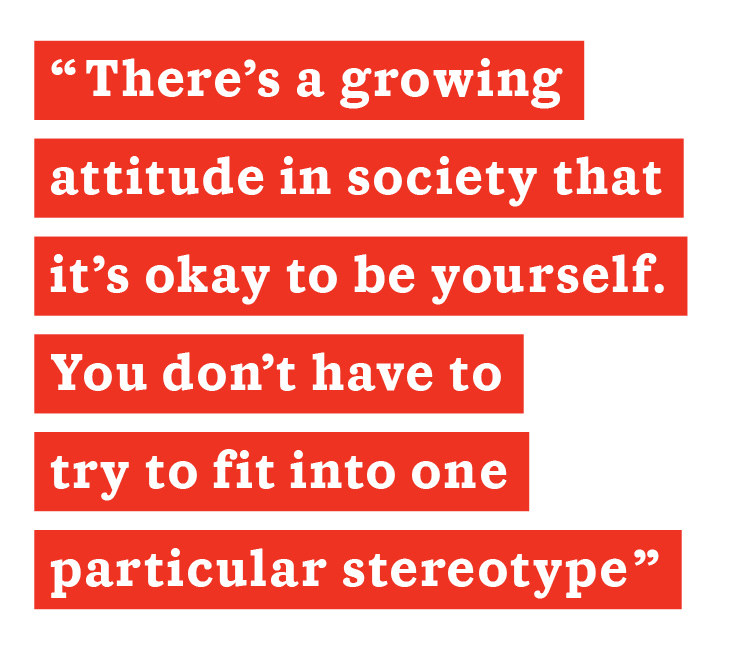
Members of one of the country's few student societies for non- and light drinkers, the "Are You Not Drinking Much?" (AYNDM) society at the University of Kent, know this all too well.
The society is now in its fifth year, with 556 members signed up to its Facebook group.
The group's new secretary, Nathan von Fraunhofer, tells BuzzFeed News interest in the society is up among the university's new intake of freshers.
"There seem to be way more this year – there's ton of people trying to apply to the group, versus a trickle last year," he says. There have been double the amount of sign-ups from 2016 and lots of interest on Facebook.
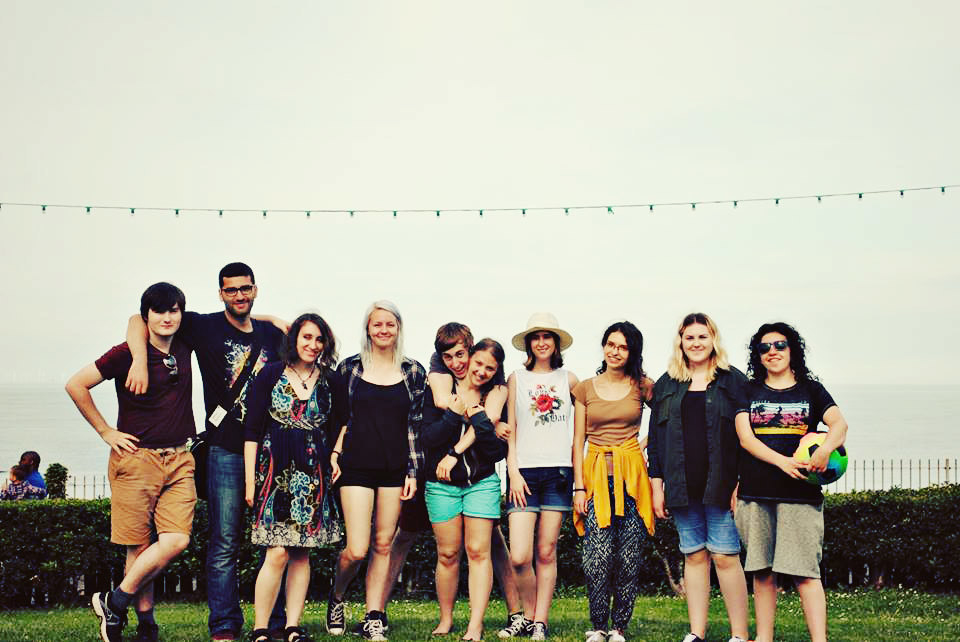
"Maybe it's because there's a growing attitude in society that it's okay to be yourself," he says. You don't have to try to fit into one particular stereotype.
"People have a bunch of reasons not to drink much – some do it on religious grounds, some because their friends don't drink much, some just like the community of AYNDM."
Proportion of people who said they hadn't had a drink in the last seven days, when surveyed
The group caters to people who are teetotal for whatever reason, but also to people who are happy to have a drink or two but dislike binge-drinking culture. It began after students of Kent saw a similar club at Reading University, "R. U. Not Drinking Much?", and decided to set up something similar.
Von Fraunhofer says his reasons for not drinking are straightforward: He just doesn't like it.
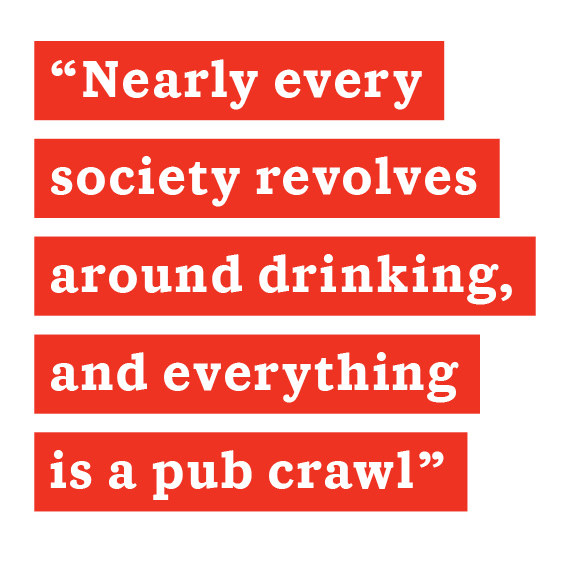
"Frankly I just can't stand the stuff – it tastes really horrible!" he says. "And I've got to admit, I'm a Christian, and so clubbing doesn't really appeal to me – the reason a lot of people go is not what I'm looking for."
Von Fraunhofer spent a term at Birmingham University but found it wasn't for him. "I really didn't enjoy it – I didn't fit in and couldn't find a society or a place to socialise, whereas as soon as I came to Kent I put up a Facebook post asking if anyone was a non-drinker and people started a Facebook group."
"Nearly every society revolves around drinking, and everything is a pub crawl," he says of uni events in general. "Even things like the History Society end up organising pub crawls."
The National Union of Students told BuzzFeed News it has launched programmes to encourage responsible drinking among students, but that unions and universities could do more to support teetotallers.
AYNDM tries to be creative with its events, Von Fraunhofer says.
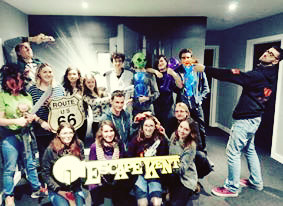
"Even our society goes to a pub on some nights, when we're short on ideas, though a lot of us will be drinking Cokes," he says. "Otherwise we do board game nights, movie nights, campus hunts, we've been to escape rooms. Because our society's just about not drinking much, we're not restricted in the activities we can do – there's plenty of scope." Usual attendance is around 15-20 people, he says.

In general, though, progress is slow for the growing number of non-drinkers on student campuses, according to Lauren Seward, a former president of AYNDM who graduated last summer.
Seward says the campus tour during her freshers' week managed to point out bars – but not any of the key buildings for her course.
"I think people are becoming more open to the idea of non-drinking," she says, "and more people are drinking less, but it’s slow going – non-drinking is still a surprise to some people and drinking does still seem to be very much ingrained in student and general culture.
"In terms of the [student] union and other establishments catering more towards non-drinking, I think there has been some minuscule improvement. I guess the issue is since non-drinking is just a matter of abstinence, most people don't feel like it needs to be catered to – people can just go on as normal and just not drink."

Seward says going to a university with a specific society for non-drinkers proved beneficial to her mental health: "Honestly, without that I think my experience would have been a lot harder. I had a miserable freshers' week because I am very introverted and shy, so I don't like going clubbing or mixing with strangers at parties, which kinda goes hand in hand with the non-drinking thing.
"I probably would have been fine eventually, joined other societies, met people through my classes, and formed my group of friends so that I could have a social life and not have to worry about drinking – but it likely would have taken a lot longer and I would have gone through a lot of anxiety, distress, and depression in the meantime."
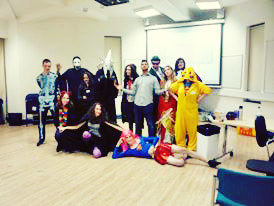
Seward says pressure to drink from others was usually applied to students who drink selectively, rather than not at all.
"This is normally related to drinking games, which are a big part of student culture," she says. "On one occasion a friend of mine did try spiking my drink as a joke ... but nowadays all my friends who do drink have accepted that I don’t and don’t try to persuade or pressure me.
"A lot of the people I’ve encountered are usually respectful that I don’t drink and won’t push me, but there are others who, whilst completely well-intentioned, will ask me if I want to try their drinks and give me suggestions on possible ones to try.
"I think most people recognise that peer pressure is bad but sometimes get caught up in the moment or don’t realise that’s what they’re doing."
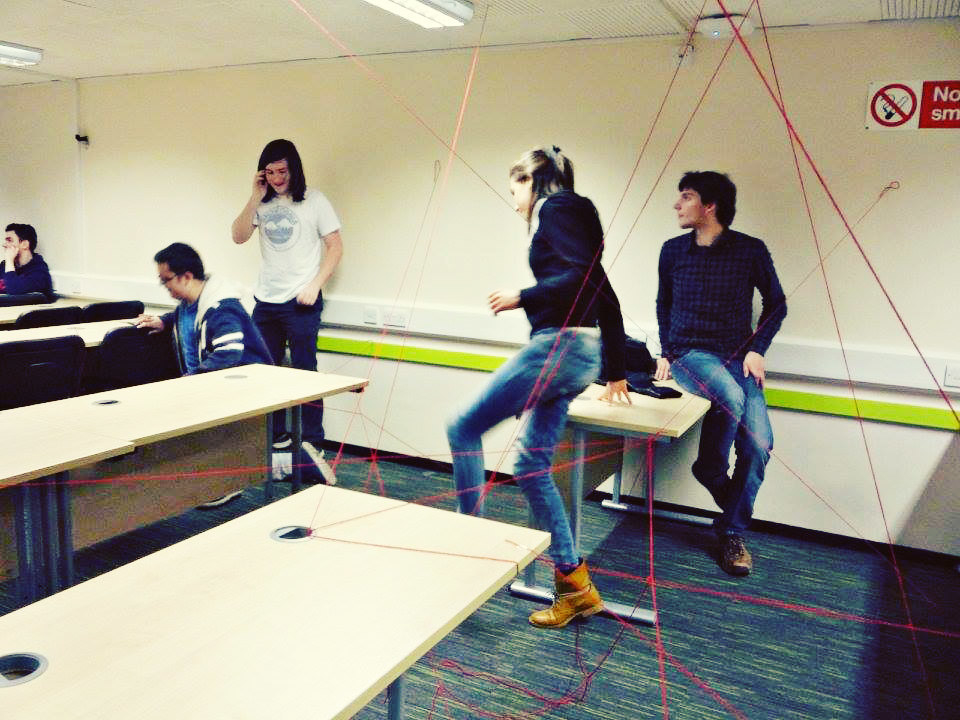
Seward says steps for universities to adapt to the rise in sobriety are simple, such as hosting more events without drinking. "Try to cater to drinking and non-drinking more equally. I think university tends to get very bogged down in the student binge-culture mindset.
"I attended a uni whose main venue was a nightclub, so it felt like all the major social events of the year were essentially clubbing, which would have an overwhelming amount of drinking involved, which I just didn't like.
"But if nothing else, probably more [alcohol-free] events in freshers' week, because that's the hardest time, when you're not suited to any of the social events but you desperately want to make friends, to feel like you're not alone."

City, University of London, has a large intake of Muslim students, many of whom are non-drinkers for religious reasons.
One of them is Saffia Mahmoud, a first-year studying Russian and Arabic. "I don't let it affect my social life," she tells BuzzFeed News. "My close friends don't really drink and we often meet up and get involved in lots of non-drinking activities."
Mahmoud says she's not had many problems with friends who do drink – "we both understand where the other is coming from" – and that not drinking also saves her a lot of money.
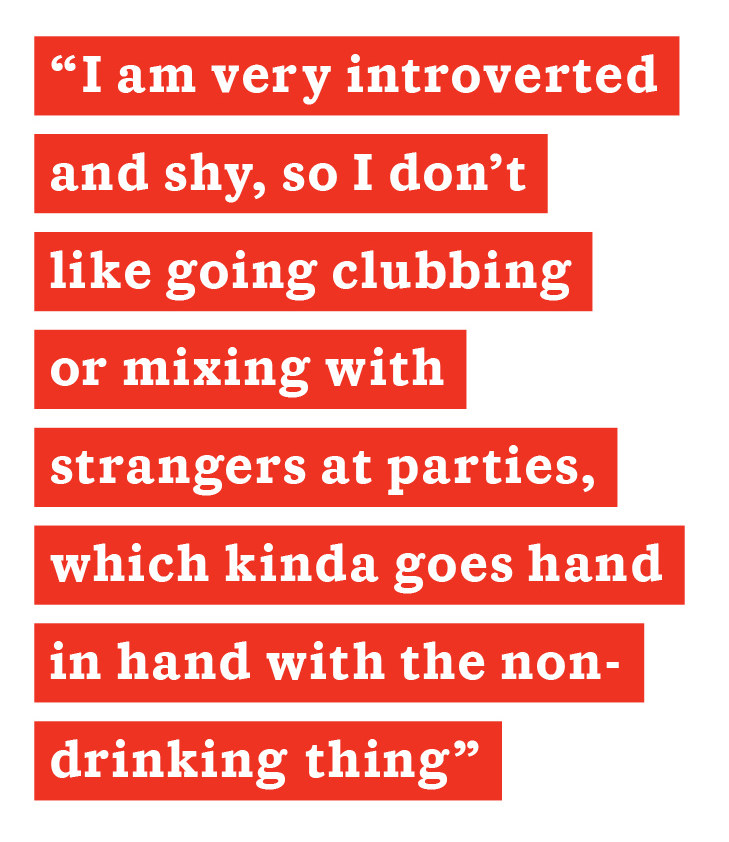
But there's still an extent to which alcohol can dominate the social scene. "They always provide a non- drinking option," she says, but the focus is the clubbing and drinking, I'd say – but not to the extent that the non-drinkers get ignored."
The presence of students not drinking for religious reasons can help others attending the university who choose not to drink, or to drink less, says Ella Ward, a third-year studying psychology at City. She prefers to drink only in moderation.
"First and foremost," she says, "I don’t find alcohol a necessary ingredient for a good night out and can feel quite as confident and have an enjoyable time while completely sober, therefore do not see the point in wasting my money on it. As well as this, when I do drink I do not enjoy the feeling of being out of control or less aware of others.
"I think more could be done for non-drinkers. However, I think that City University is relatively accommodating to non-drinkers: As a large population of the students are Islamic and do not drink, the university is aware that people will want other event options."
Despite this, Ward says her light drinking – she estimates she spends £10 a month on alcohol, versus what she estimates at up to £200 for some of her friends – can cause tension even with some close friends.
"I initially found drinking less than my friends did have an effect on my social life – I was less likely to be invited to parties because people thought I was not up for a good time. As well as this, I have previously found people to try and encourage me to drink or even pressure me to drink.
"They have often called me boring and been quite offensive about my choice not to drink a lot. Although as time has gone on they have learnt that I can still be a part of their nights out and have fun while being sober, there are still the odd moments of friction."
The NUS's VP of welfare, Izzy Lenga, says more change was undoubtably needed to recognise the shift in student lifestyles. "We recognise that many activities, particularly around freshers' week centre on drinking," she says. "In 2014, NUS set up the Alcohol Impact project to help change behaviours and attitudes regarding alcohol at universities, creating a social norm of responsible consumption by students, leading to safer and more productive places to study and live.
"We know that our Alcohol Impact work is only part of the solution to reduce irresponsible alcohol consumption, and students’ unions should host a whole range of inclusive events away from bars and pubs to ensure that all students can enjoy their first few weeks settling into university life."

